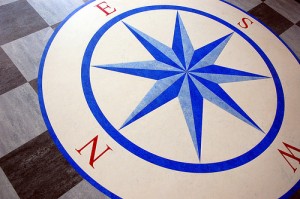 If you don’t know where you’re going, you’ll wind up someplace else.” - Yogi Berra
If you don’t know where you’re going, you’ll wind up someplace else.” - Yogi Berra
Everyday life is busy. So many demands on our time and attention. We may not often pause to ask a basic and important question.
Where are we headed?
Transition planning means supporting kids as they consider this question. And as they revisit it again and again in light of their growing experience.
Begin with the end in mind
This is one of Stephen Covey’s 7 Habits. And it’s a transition planning mantra. Everything we do to support our child should be guided by his vision for his future.
What’s your child’s vision?
What’s most important to your child?
- How would he describe an ideal day in his future adult life?
- What environments and activities does he prefer?
- How would he like to contribute to the world?
- What people are most important to him?
Questions like these act as a compass, pointing in the direction your child wants to go.
There’s power in writing it down
Writing our vision down and revisiting it regularly is a powerful practice.
Click here to find out why and learn about the experience of two families who tried it.
How did Mikey know?
Our vision of the future is based on our experience and the information available to us.
Kids have a disadvantage here. Their information and experiences may be limited.
Remember the classic Life cereal commercial? Mikey knew he liked it when he tried it.
Our kids need a wide range of experiences so they can make informed choices about their future. They need to research and test-drive their interests through experiences like varied recreational activities, volunteering, internships, job shadowing, community based work assessments and employment.
And they need some support reflecting on these experiences, revisiting their vision and making next-step action plans.
More than one way to communicate
If our child’s verbal skills are very limited, we can listen in a different way.
USARC/PACE has put together a Listen to Me workbook. It can guide us in listening to a young person by observing responses in different situations. Over time.
Click here to download a free pdf copy.
One page planning tool
As our kids develop and refine their vision, they’ll need to make plans. What steps will they take to move toward the future they desire? What strengths do they already have and what new skills will they need to learn? Who can support them along the way?
Judith Snow developed a one page graphic to organize answers to some of these planning questions. Download it here: Vision Planning Worksheet.
What next?
As the new year approaches, it’s an ideal time to reflect. Perhaps you can plan a time in the next few days for a conversation with your child.
Take some time to notice and really celebrate progress made in the past year.
Help your child to clarify and record his or her vision for the future. And plan a concrete step or two you can take together in the next month to work toward and refine that vision.
What a great way to ring in the new year!
Your turn
What strategies do you find helpful as you support your child in planning for the future? We’d love to hear from you.
And, take some time to enjoy the journey, ok?
If you found this post helpful, I’m grateful if you share it. Thanks!
Image by Steve Snodgrass at Flickr


